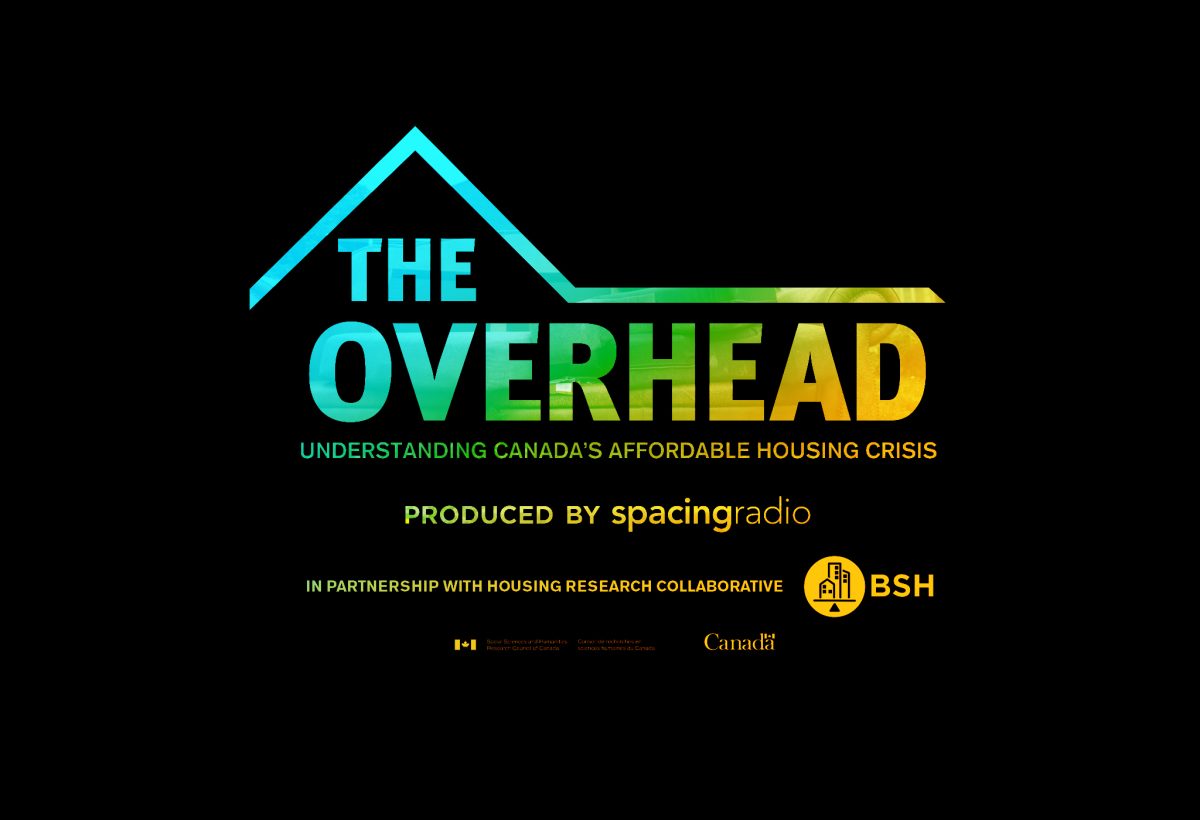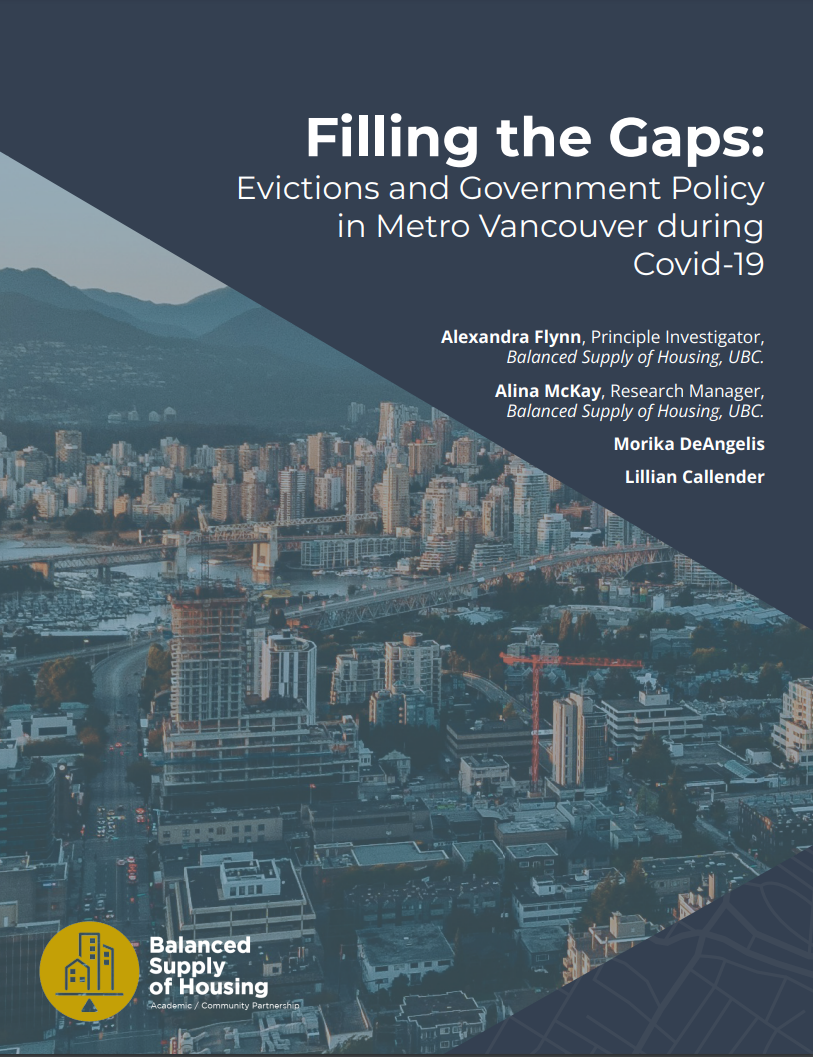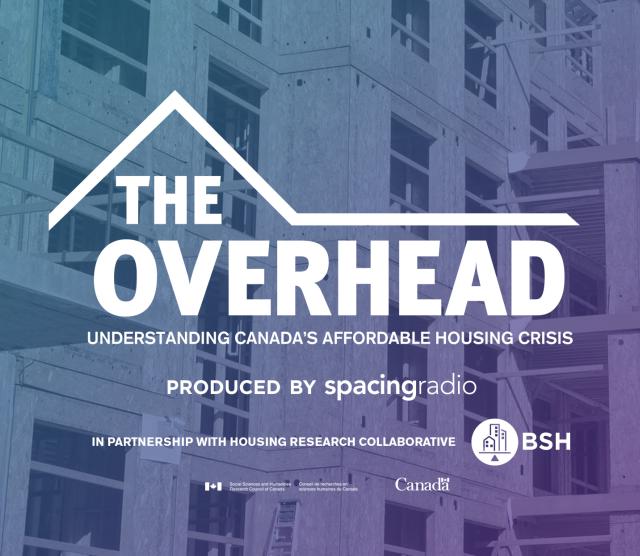Filling the Gaps in Housing
Tracking Legislative Responses to COVID-19 in Emergency Housing Initiatives
Last modified:
This project uses a mixed methods approach to query how housing-related initiatives introduced by federal, provincial, and municipal governments in Toronto, Vancouver, and Montreal have impacted housing security for renters and precariously-housed people, including those who are homeless, both during and following the COVID-19 pandemic.
Jump to Research OutputsHow did your government protect housing security during the pandemic?
Secure and safe housing is a social determinant of health, including mental health (Forchuk, Cheryl, Dickins, Kevin & Corring, Deborah, “Social Determinants of Health: Housing and Income” (2016) 18 Healthcare Quarterly 27). The COVID-19 emergency has also exposed housing as a health solution: social distancing necessitates separate, secure housing units in order to ‘flatten the curve’ and reduce community infection (BC Housing, Covid-19, online). This project responds to Node priorities by gathering data to assess legislative responses in Canada’s three most-populous Census Metropolitan Areas (Toronto, Montréal, and Vancouver) to assess the objectives, achievements, and gaps in emergency housing initiatives. The aim is to: (1) document the strategies adopted by different jurisdictions in relation to housing need; and (2) how the solutions crafted to respond to housing vulnerability affect existing housing challenges, including homelessness, housing precarity, the regulation of short-term rentals, and geographic housing disparity. The results will be published as policy briefs and peer-reviewed journals, and disseminated in popular media forums such as the Globe & Mail and Policy Options.
Project Lead(s):
Home Organization:
University of British Columbia
Other Participants:
Funding Stream:
Comparative Project
Project Status:
Ongoing
Methods
This project uses a mixed methods approach to query how housing-related initiatives introduced by federal, provincial, and municipal governments in Toronto, Vancouver, and Montreal have impacted housing security for renters and precariously-housed people, including those who are homeless, both during and following the COVID-19 pandemic. Funding will be used to hire four students: one at each of UBC Law, UBC planning, the University of Toronto, and McGill. Research assistants will hone skills in case-law research, conducting reviews of policy and grey literatures, developing survey material and databases, analyzing data, and drafting research briefs.
Timeline
The funding will support three phases of research, each with its own methodologies and project deliverables. In the first part of the project, we will review legislation and policy materials to document the housing strategies adopted by all three governments related to housing in Toronto, Vancouver, and Montreal. We will compare this data with existing material, including Statistics Canada 2016 Dissemination Area Census Profiles and microdata from the Survey of Household Spending, to evaluate which demographics will be assisted as a result of these government strategies. This phase of the research will identify whether those dependent on signatories to housing leases, precarious workers, those experiencing homelessness, and those experiencing domestic violence are protected by government measures.
In the second phase, we will gather novel data through the use of surveys distributed to non-profit housing organizations in Toronto, Vancouver, and Montreal, including those already identified as Node partners. The surveys will be used to identify the efficacy of governmental strategies for low-income, vulnerable persons in two streams. Stream 2 collects data on those forced from housing by landlords despite legal protections, including illegal evictions. The surveys will aim to isolate eviction attempts based on non-payment of rent as opposed to other grounds. Several Node partners working with vulnerable populations in each city will be surveyed; if warranted, interviews and/or focus-group discussions will be led to understand whether housing protections in each jurisdiction have had the intended consequences. The aim of this research is to ‘fill in the blanks’ resulting from the first part of the project by understanding the breadth of housing need that has been addressed by government initiatives in the COVID-19 emergency.
In the third phase, we will collect data to examine the effects on housing in each of the three cities once government initiatives conclude. We will build a database for this phase of the study, with indicators such as rates of evictions, Airbnb rentals, housing transaction, price data, number of shelter beds, the rental of hotels for those experiencing homelessness, and mortgage defaults. The aim of this part of the study is to identify the unintended consequences, if any, on housing need or particular demographics once ameliorative measures are lifted. The construction of the database will begin once funding is received.
Research Outputs
Existing reports, presentation materials, podcasts, webinar recordings, and research summaries.
Alert the presses!
This project hasn’t hit the news yet.




